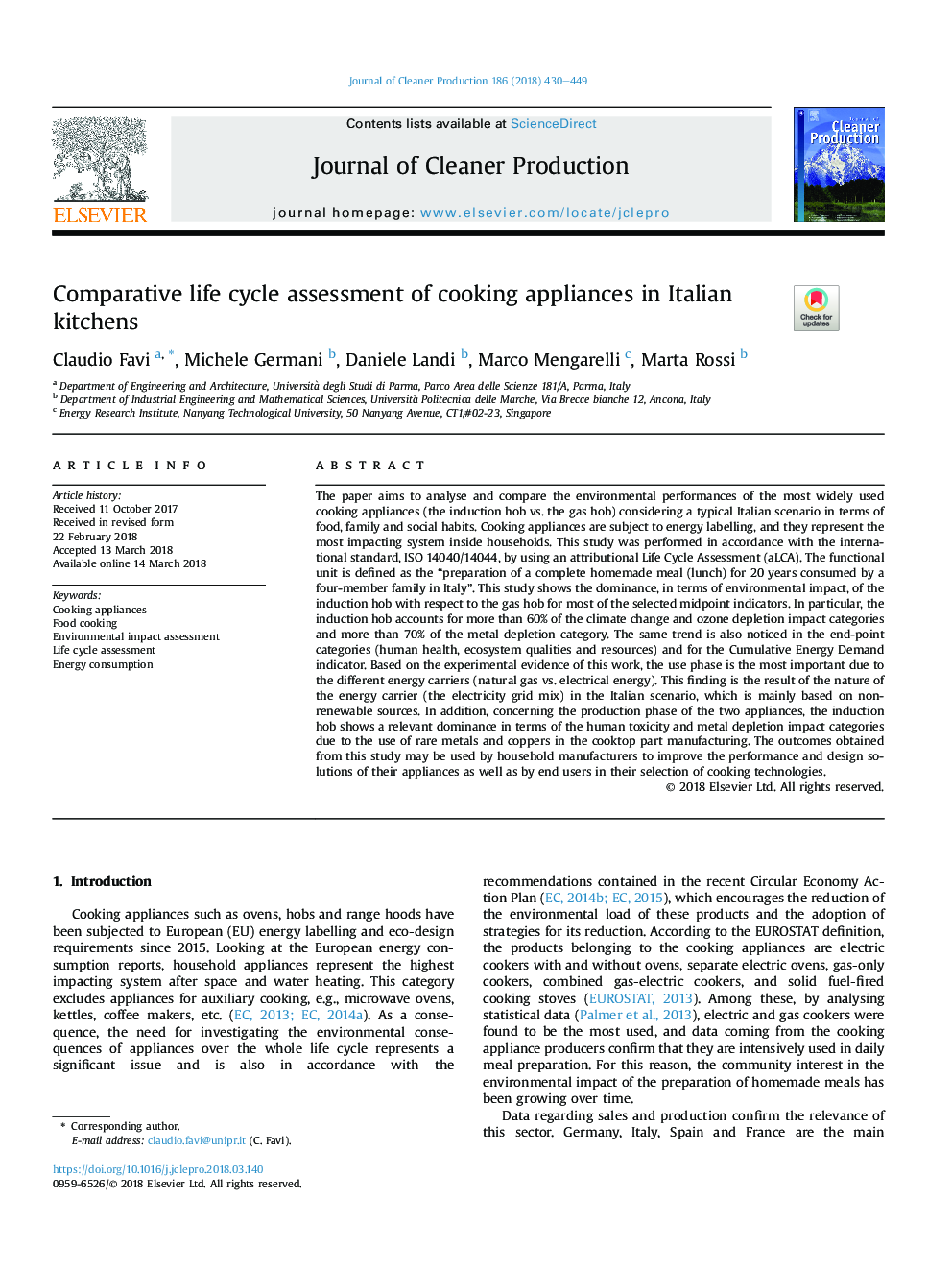| Article ID | Journal | Published Year | Pages | File Type |
|---|---|---|---|---|
| 8096207 | Journal of Cleaner Production | 2018 | 20 Pages |
Abstract
The paper aims to analyse and compare the environmental performances of the most widely used cooking appliances (the induction hob vs. the gas hob) considering a typical Italian scenario in terms of food, family and social habits. Cooking appliances are subject to energy labelling, and they represent the most impacting system inside households. This study was performed in accordance with the international standard, ISO 14040/14044, by using an attributional Life Cycle Assessment (aLCA). The functional unit is defined as the “preparation of a complete homemade meal (lunch) for 20 years consumed by a four-member family in Italy”. This study shows the dominance, in terms of environmental impact, of the induction hob with respect to the gas hob for most of the selected midpoint indicators. In particular, the induction hob accounts for more than 60% of the climate change and ozone depletion impact categories and more than 70% of the metal depletion category. The same trend is also noticed in the end-point categories (human health, ecosystem qualities and resources) and for the Cumulative Energy Demand indicator. Based on the experimental evidence of this work, the use phase is the most important due to the different energy carriers (natural gas vs. electrical energy). This finding is the result of the nature of the energy carrier (the electricity grid mix) in the Italian scenario, which is mainly based on non-renewable sources. In addition, concerning the production phase of the two appliances, the induction hob shows a relevant dominance in terms of the human toxicity and metal depletion impact categories due to the use of rare metals and coppers in the cooktop part manufacturing. The outcomes obtained from this study may be used by household manufacturers to improve the performance and design solutions of their appliances as well as by end users in their selection of cooking technologies.
Related Topics
Physical Sciences and Engineering
Energy
Renewable Energy, Sustainability and the Environment
Authors
Claudio Favi, Michele Germani, Daniele Landi, Marco Mengarelli, Marta Rossi,
